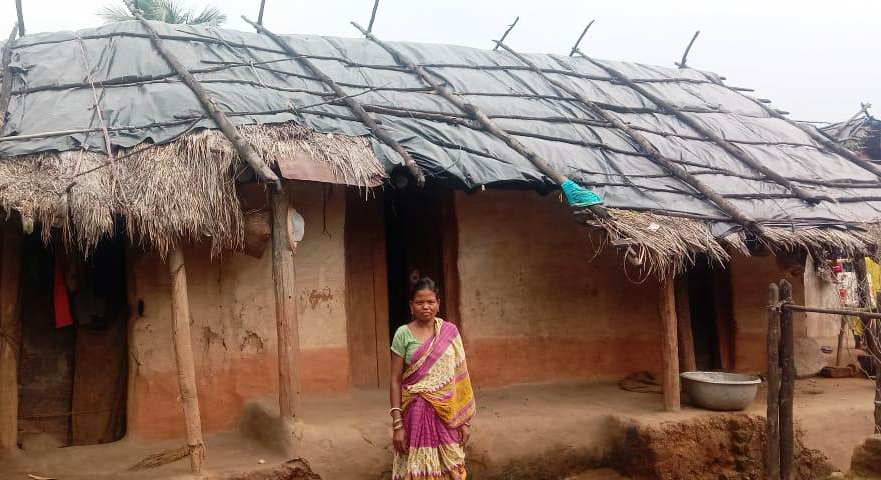Keonjhar: Though crores of rupees are being pumped into a host of schemes and welfare measure for tribal people, many tribal villages in Keonjhar are far from development.
Gudinarda is a Juanga-dominated village tucked away in the hilly terrains of Talapada panchayat under Telkoi block. It is among the villages that has been a victim of government apathy.
This village was once a hotbed of Maoists. However, given the sorry state of the villages and its Juanga residents, it is apparent that development has certainly taken a back seat in this tribal village.
As there is no provision of safe drinking water, the tribals have to feed on water from pits or streams. “The sarpanch hails from our village, but it is an irony that the village development has been given a short shrift.
There is no proper road to the village while people walk miles to get rations and pension from the panchayat office,” locals said. The panchayat office is 10 km from the village.
Elderly people are unable to trek to such a long distance to get their entitlements. As the village road is in bad shape, emergency services are not available to the villagers.
“Access of ambulance and fire tenders to the village is almost impossible. Those who have visited the village once will never want to revisit it,” lamented Birabar Nayak, a social activist.
In 2016, 35 families received housing units under Indira Awas Yojana, but most of these houses are left at different stages of construction. “Many have not received housing benefits.
They are compelled to live in misery, enduring the sun and rain. Contractors have left the work halfway,” laments Sabitri Juanga, sarpanch.
“Though we have appraised the panchayat and the block authorities of the problems faced by the villagers in the past, no step has been taken to redress them,” she added.
There is special provision of development plans in the villages under Forest Rights Act.
Under this Act, 13 types of development and welfare activities can be taken up for the tribals – such as Anganwadi centres, school buildings, road connectivity, drinking water, solar-powered lighting systems and irrigation, the sarpanch said.
The gram sabha, on behalf of panchayat, will decide on project proposals. The BDO is supposed to send the proposals through the range officer to the DFO. On his part, the DFO sends the proposals to the Collector for approval.
Then, the Collector decides how the works will be undertaken, explained Ananda Charan Sethi, another social activist.
PNN
